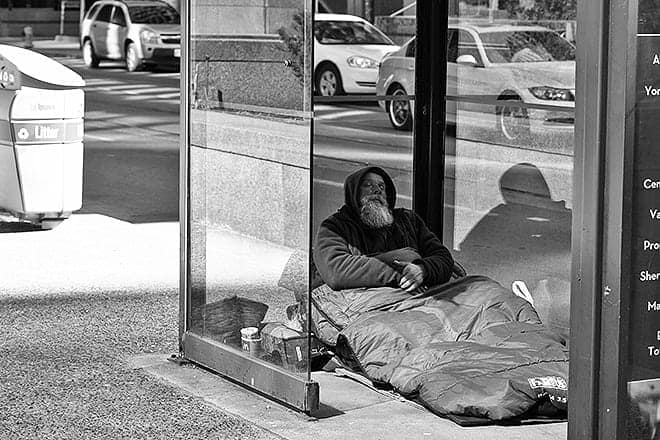Sitting on wrongful biases

 Our wrongful judgments about the homeless fuel decisions regarding the homeless
Our wrongful judgments about the homeless fuel decisions regarding the homeless
The other day, my mom said something interesting after seeing my op-ed about housing for the homeless and those unable to find rent within the city.
“You know, you’ve never really been poor.”
Her statement threw me for a loop. I’ve lived a comfortable financial life, where I’ve never had to worry about food, shelter, clothing, education and even extra-curricular activities such as sports and music.
Interestingly, the same couldn’t be said about my mother. Her five siblings never had the same opportunities as I did; she never pursued the piano lessons she wanted to take, walked miles on end to get to school, living a life that wasn’t stricken with poverty, but definitely not affluent. And she followed up her statement with an offhanded comment: “You don’t really understand what being poor means.”
That conversation is the inspiration for this article, in specific to Regina Police Service’s request to remove a transit bench at the corner of Victoria Ave. and Broad St. This decision was fuelled by business owners, executed by Regina Transit and justified by the police as to ‘not promote that (transit bench) as a loitering area of the city’.
Most people, not all, in this University pertain to demographics that have never experienced homelessness or poverty. We (myself included) have never experienced the dire realities those homeless and impoverished face. We’ve never had to wonder where our next meal is coming from, where we are going to sleep amidst frighteningly cold weather or where we are going to spend the day, without a home or a place of comfort. In addition, we’ve never had to live, nor do we understand the series of events that would place a person in poverty or homelessness. Some of which may be an array of unfortunate circumstances, whether it may be broken families surrounded by alcohol, drugs and abuse of all forms or mental and physical illness.
I believe that lack of comprehension about the realities of homelessness is what fuels the misguided judgments we place on the homeless. Naturally, albeit wrongfully, individuals carry a bias that shove away those that are homeless to turn a blind eye to those that are homeless as opposed to enabling and helping them. It is this misguided superiority and bias we feel that fuels business owners’ pleas to get rid of transit benches in order to detach themselves from the homeless. It is also this wrong sentiment that urges the consumers of the business to view those businesses with anyone displaced around the premise as dangerous, dirty or any less of an establishment.
Further exacerbating this misguided notion is our government bodies that enable these sentiments to continue. It is only through the decisions of Regina Transit, the Regina Police Service and various branches of government that are funded by the people, that transit benches can be removed and the homeless told not to ‘loiter’ while having nowhere to go.
One may think that denouncing the action of taking away one simple and insignificant transit bench is a petty. However, this decision is representative of a larger misguided societal norm. We view the homeless on transit benches as ‘loitering’ instead of having no place to go, stranded with no hope. Our biases about the homeless transpire a sense of superiority when we see them, although we neither know nor understand the complex sequences of events that have funneled into a person being on the streets.
Finally, when confronted with an opportunity to formulate long-term solutions for the homeless, we circle around pragmatic, effective, cost-saving measures, calling it an economic burden or costly. We need to shift our wrongful thinking to view the homelessness through a different lens, and when we achieve this, we can become a better city, province, Canada and a better society.









